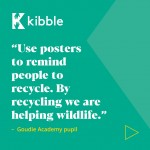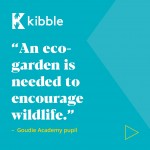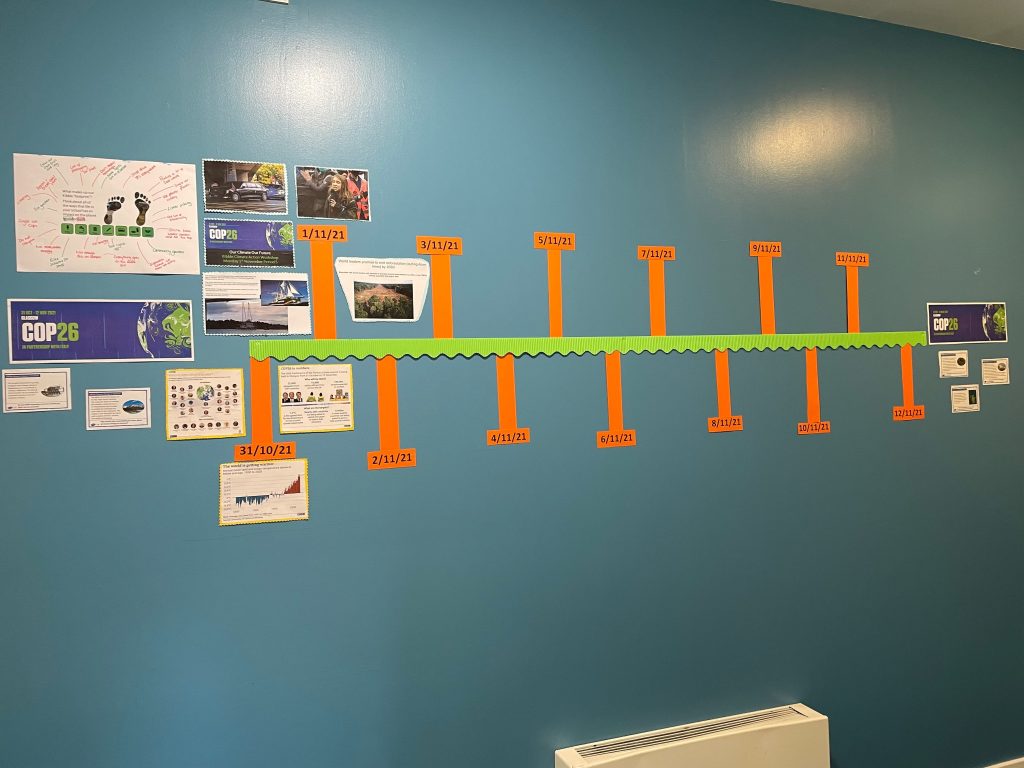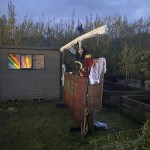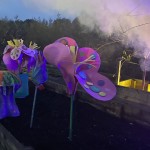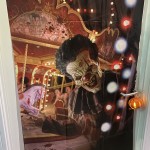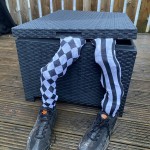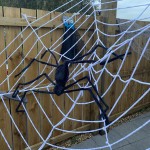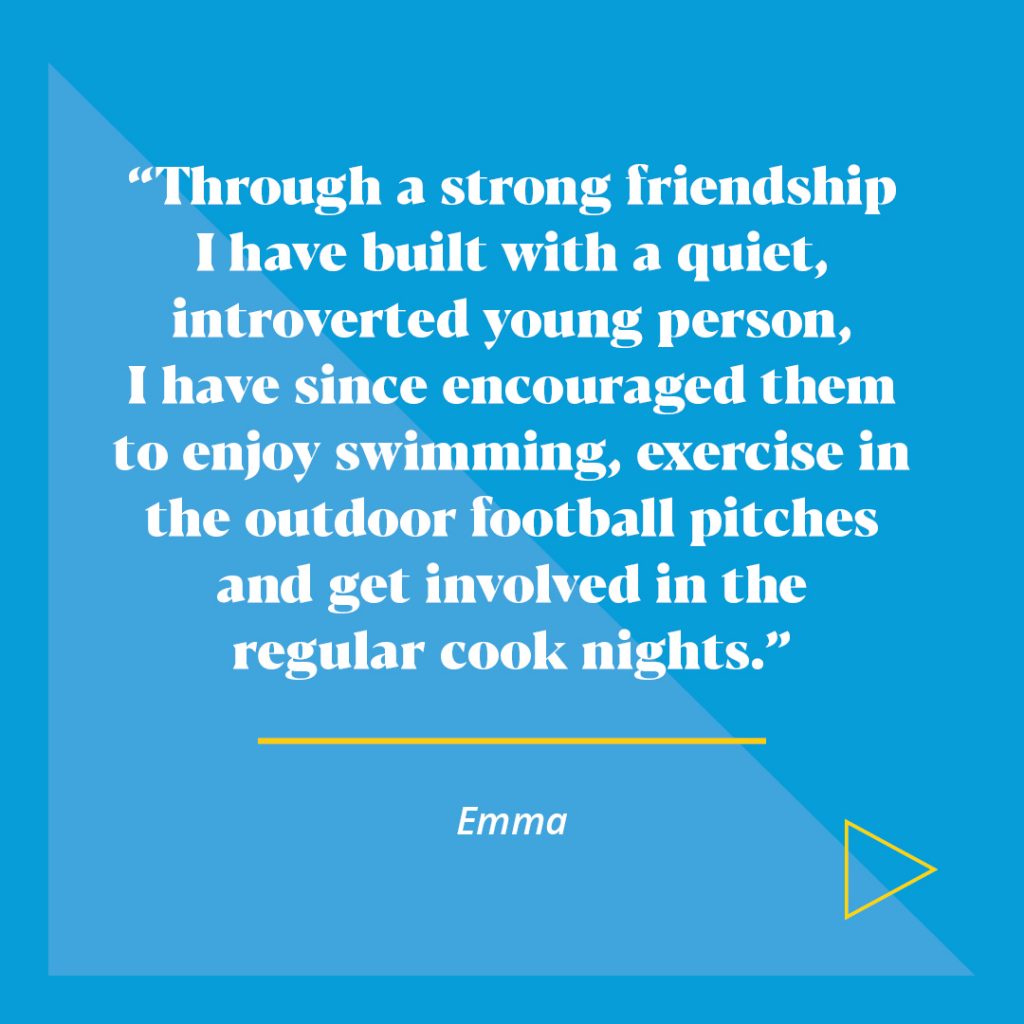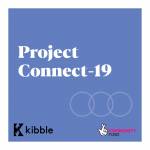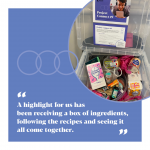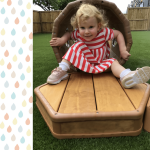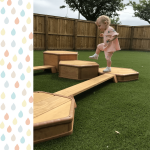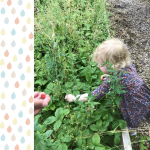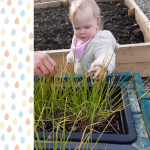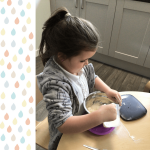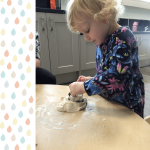Posted: November 2, 2021This Halloween, Kibble’s campus was transformed into a terrifying Transylvania as young people decorated houses, made their way through the spooky Halloween Trail and pinned their hopes for the future in the Paisley Halloween Festival.
On Thursday 28 October, young people left no ‘tombstone’ unturned as they dressed their houses in the scariest decorations that would’ve left Frankenstein quaking in his boots. Prizes were awarded for the scariest, funniest and homemade decorations and the competition was fierce! As judges made their way round the houses, they were entertained by dancing zombies, scenes from The Shining, smouldering cauldrons, headless teddies, haunted dolls and even Pennywise hiding behind a tree. There was so much fun and excitement with young people planning and coordinating costumes, props and accessories for a number of weeks. Among the costumes we had scary dinosaurs, superheroes, black cats, zombies with petrifying make up and the witches from Hocus Pocus.
It was thanks to Aldi In Cardonald who, for the second year running, kindly donated 25 pumpkins to the children and young people at Kibble to help decorate the houses.
Under the cloak of night, it was time to make for the Haunted Halloween Trail. This was certainly not for the feint hearted. In their groups, young people tentatively followed the trail featuring terrifying props, haunting music, atmospheric smoke, dramatic lighting effects… and lots of unexpected surprises along the way! The trail hosted cackling witches, haunted pirates, scary clowns and zombies that appeared from pumpkin patches, within tunnels and hiding behind the spooky props. It’s fair to say that the children and young people were far braver than the staff who were left screaming like banshees.
After all the excitement of the trail, Carol in our home economics class was serving up delicious hot dogs and hot chocolates whilst stories were shared of what part of the trail was the most frightening and who had the best costume. The buzz around Kibble was magical and it was an evening to make lots of fun, happy memories among friends. The Halloween event was the brainchild of the education team, and what an event it was! But of course, every opportunity is a chance to learn and the many props that lined the trail were created by pupils in our expressive arts department and contributed to a range of qualifications.
Just a short broomstick journey away at Forest View, our primary years campus, children enjoyed pumpkin carving and had a very special Halloween party with lots of party games and prizes to be won. There was event Halloween themed numeracy and literacy lessons to bring some fun and magic within the classroom.
Young people also got involved in their year’s Paisley Halloween Festival themed ‘Out of This World’. Visitors came from all over to visit the historic centre where there was a host of activities and spooky installations, including a huge purple alien emerging from Paisley Town Hall. In front the abbey was a 16-foot spacecraft installation, Earthship 1, which featured inspiring artwork and messages of hope for the future from young people across Renfrewshire. For Kibble’s young people, their creations were aligned to the environment, their hopes and dreams as well as messages calling for adults to consider care experienced young people in their decision making. This was in the shadow of COP26, the world climate conference happening in Glasgow, and our ongoing commitment to Keep the Promise and improve the life chances for care experience people across Scotland.
As part of the festival Kibble young people also designed artwork inspired by renowned artist Keith Haring, which was projected on the side of the Town Hall.
The next big event on the Kibble calendar is Christmas time and the plans are already in full swing to make this another special event to remember. Happy Halloween one and all!




